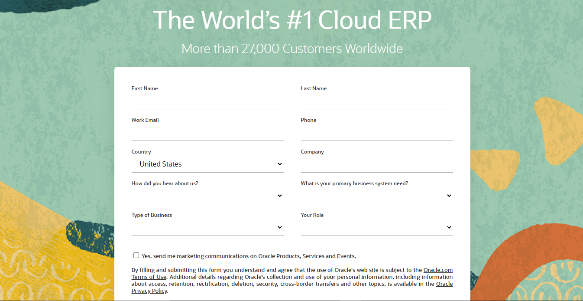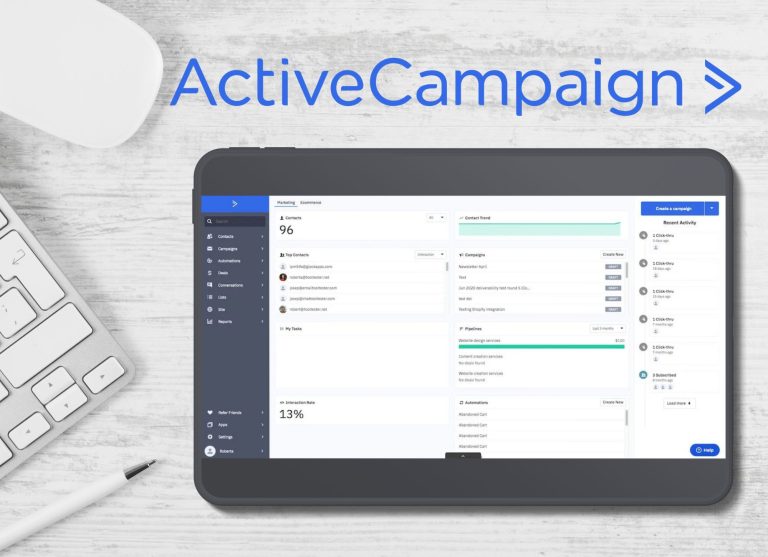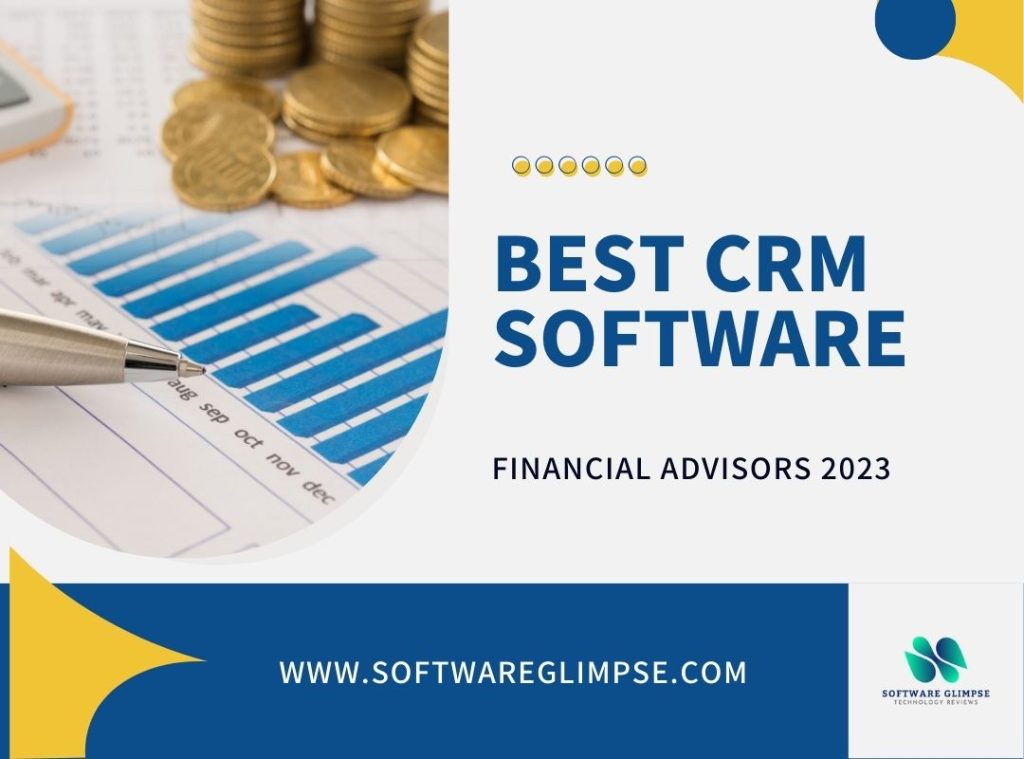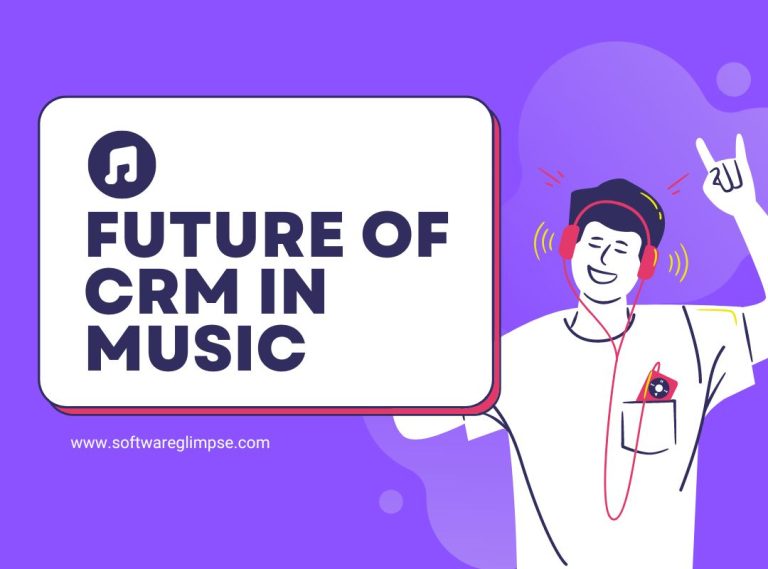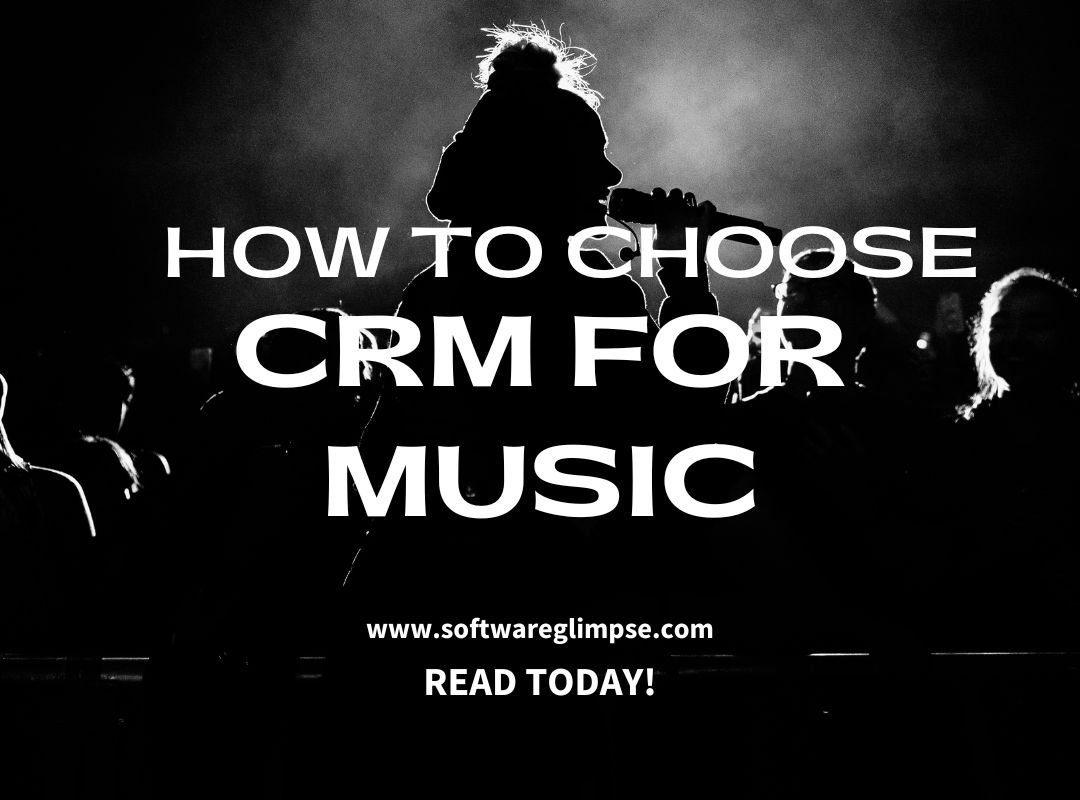Unlocking Harmony: The Ultimate CRM Guide for Independent Musicians Thriving in the Digital Age
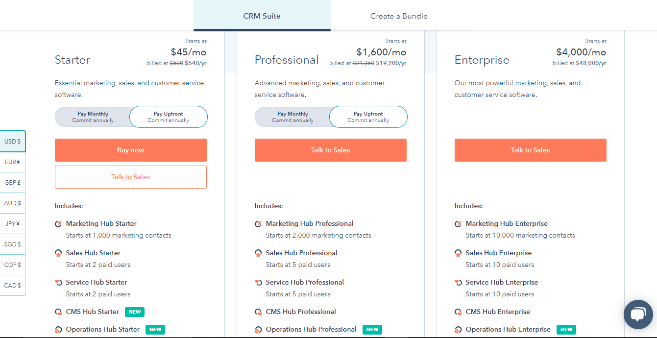
Unlocking Harmony: The Ultimate CRM Guide for Independent Musicians Thriving in the Digital Age
The music industry is a beast. It’s a whirlwind of creativity, hustle, and constant connection. For independent musicians, navigating this landscape can feel like charting unknown waters. You’re not just creating music; you’re also the manager, the marketer, the salesperson, and the accountant. In this demanding environment, organization is key. That’s where Customer Relationship Management (CRM) software comes in – your secret weapon for building a thriving music career.
This comprehensive guide dives deep into the world of CRM, specifically tailored for the unique needs of small musicians. We’ll explore the best CRM options available, break down their features, and show you how to leverage them to connect with fans, manage gigs, and ultimately, make a living doing what you love.
Why CRM is a Game Changer for Musicians
Think of a CRM as your central hub for all things music-related. It’s where you store contact information, track interactions, manage your schedule, and analyze your progress. Before the age of CRM, musicians often relied on spreadsheets, email chains, and scattered notes. This fragmented approach made it challenging to stay organized and provide personalized experiences for fans. CRM software streamlines these processes, offering a multitude of benefits:
- Improved Organization: Centralize all your contacts, gigs, and communication in one place.
- Enhanced Communication: Segment your audience and send targeted messages to specific groups.
- Boosted Fan Engagement: Personalize interactions and build stronger relationships with your fans.
- Streamlined Scheduling: Manage your gigs, rehearsals, and other commitments efficiently.
- Data-Driven Decisions: Track your progress and make informed decisions based on your performance.
- Increased Revenue: Identify and capitalize on opportunities to sell music, merchandise, and tickets.
In essence, a CRM empowers you to work smarter, not harder, allowing you to focus on creating music while building a sustainable career.
Key Features to Look for in a CRM for Musicians
Not all CRMs are created equal. The ideal CRM for a musician should cater to their specific needs. Here are some essential features to consider:
Contact Management: The Foundation
At its core, a CRM is about managing relationships. The contact management feature should allow you to:
- Store detailed contact information for fans, promoters, venues, and industry contacts.
- Organize contacts into segments based on location, interests, or engagement level.
- Add custom fields to capture specific information relevant to your music career (e.g., favorite song, concert attended).
Email Marketing Integration: Staying Connected
Email marketing is a powerful tool for communicating with your fans. Your CRM should seamlessly integrate with email marketing platforms, enabling you to:
- Create and send targeted email campaigns to specific segments of your audience.
- Track email open rates, click-through rates, and other important metrics.
- Automate email sequences for tasks like welcoming new subscribers or promoting new releases.
Event Management: Booking and Promotion
Managing gigs and performances is crucial for any musician. Look for a CRM that helps you:
- Track upcoming gigs, rehearsals, and other events.
- Manage venue contacts and contracts.
- Promote your events through email and social media integration.
- Send automated reminders to fans about upcoming shows.
Sales and Revenue Tracking: Monitoring Your Progress
Understanding your income streams is vital for financial stability. The CRM should offer features to:
- Track sales of music, merchandise, and tickets.
- Generate reports on revenue, expenses, and profit margins.
- Integrate with payment processors like PayPal or Stripe.
Social Media Integration: Amplifying Your Reach
Social media is an essential platform for connecting with fans. The CRM should allow you to:
- Integrate with your social media accounts to track engagement and analyze performance.
- Schedule social media posts to promote your music and events.
- Monitor mentions and conversations about your music.
Reporting and Analytics: Making Data-Driven Decisions
Data is your friend. Your CRM should provide insightful reports and analytics to help you:
- Track your progress over time.
- Identify your most engaged fans.
- Optimize your marketing efforts.
- Understand what’s working and what’s not.
Top CRM Software Options for Musicians
Now, let’s dive into some of the best CRM options available for small musicians. We’ll consider factors like features, pricing, ease of use, and integration capabilities.
1. HubSpot CRM: The Free Powerhouse
Best for: Musicians who are just starting out or have limited budgets.
HubSpot CRM offers a robust free plan that includes contact management, email marketing, and basic sales features. It’s incredibly user-friendly and offers excellent integration with other marketing tools. While the free plan has limitations, it’s a fantastic starting point for musicians who are new to CRM. As your needs grow, you can upgrade to paid plans for more advanced features.
Key Features:
- Free forever plan with essential features.
- Contact management.
- Email marketing.
- Sales pipelines.
- Integration with other marketing tools.
Pros:
- Completely free for basic usage.
- User-friendly interface.
- Excellent customer support.
- Integrates well with other HubSpot products.
Cons:
- Limited features in the free plan.
- Advanced features require paid upgrades.
2. Zoho CRM: The Versatile Option
Best for: Musicians who need a comprehensive CRM solution with a range of customization options.
Zoho CRM offers a wide array of features, including contact management, sales force automation, and marketing automation. It’s a powerful platform that can be customized to fit the specific needs of your music career. Zoho CRM offers a free plan for up to three users, making it a viable option for solo musicians and small bands. Paid plans offer more features and storage.
Key Features:
- Contact management.
- Sales force automation.
- Marketing automation.
- Workflow automation.
- Reporting and analytics.
Pros:
- Wide range of features.
- Highly customizable.
- Affordable pricing plans.
- Good integration capabilities.
Cons:
- Can be overwhelming for beginners due to the vast feature set.
- The free plan has limitations.
3. Pipedrive: The Sales-Focused CRM
Best for: Musicians who are heavily focused on sales and revenue generation.
Pipedrive is designed with a strong focus on sales pipeline management. It helps you track leads, manage deals, and close sales. If you’re actively selling music, merchandise, or concert tickets, Pipedrive can be a valuable tool. Its intuitive interface makes it easy to visualize your sales process and identify areas for improvement. They do not have a free plan but offer a free trial.
Key Features:
- Visual sales pipelines.
- Deal tracking.
- Email integration.
- Reporting and analytics.
Pros:
- Intuitive and easy-to-use interface.
- Focus on sales pipeline management.
- Excellent for tracking deals.
Cons:
- Less emphasis on marketing automation compared to other CRMs.
- No free plan available.
4. Agile CRM: The All-in-One Solution
Best for: Musicians seeking an all-in-one solution that combines CRM, marketing automation, and helpdesk features.
Agile CRM offers a comprehensive suite of features, including contact management, sales automation, marketing automation, and helpdesk capabilities. It’s a good choice if you want a single platform to manage all aspects of your business. Agile CRM offers a free plan for up to 10 users, making it a good option for small bands or music teams. Paid plans offer more advanced features and storage.
Key Features:
- Contact management.
- Sales automation.
- Marketing automation.
- Helpdesk features.
- Reporting and analytics.
Pros:
- All-in-one solution.
- Comprehensive features.
- Affordable pricing.
Cons:
- Interface can feel a little clunky compared to other CRMs.
- Some features may not be as polished as those of specialized CRMs.
5. Keap (formerly Infusionsoft): The Marketing Automation Powerhouse
Best for: Musicians who want to automate their marketing and sales processes.
Keap is a powerful CRM with a strong focus on marketing automation. It allows you to create automated email sequences, manage sales pipelines, and track customer interactions. If you want to automate your marketing efforts and nurture leads, Keap is a good choice. However, it can be more complex than other CRMs, and its pricing is higher.
Key Features:
- Marketing automation.
- Sales pipelines.
- Contact management.
- Email marketing.
- E-commerce integration.
Pros:
- Powerful marketing automation capabilities.
- Excellent for lead nurturing.
- E-commerce integration.
Cons:
- More complex than other CRMs.
- Higher pricing.
Implementing a CRM for Your Music Career: A Step-by-Step Guide
Choosing the right CRM is just the first step. To truly unlock the power of CRM, you need to implement it effectively. Here’s a step-by-step guide to get you started:
1. Define Your Goals and Needs
Before you dive into the technical aspects, take some time to define your goals. What do you hope to achieve with a CRM? Are you looking to increase ticket sales, grow your email list, or improve fan engagement? Once you have a clear understanding of your objectives, you can identify the features and functionalities that are most important to you.
2. Choose the Right CRM
Based on your goals and needs, research and compare different CRM options. Consider the features, pricing, ease of use, and integration capabilities of each platform. Take advantage of free trials to test out different CRMs and see which one best fits your workflow.
3. Import Your Data
Gather all your existing contact information from spreadsheets, email lists, and other sources. Import this data into your CRM. Be sure to organize your contacts into segments and add any custom fields that are relevant to your music career. This will ensure you have a well-organized database to work from.
4. Customize Your CRM
Tailor your CRM to fit your specific needs. Add custom fields, create sales pipelines, and set up automated workflows. This will help you streamline your processes and make the most of your CRM. The more personalized your setup, the more efficient your efforts will be.
5. Integrate with Other Tools
Connect your CRM with other tools you use, such as your email marketing platform, social media accounts, and payment processors. This will allow you to seamlessly share data and automate tasks across different platforms.
6. Train Your Team (If Applicable)
If you’re working with a team, provide training on how to use the CRM. Ensure everyone understands how to input data, manage contacts, and leverage the CRM’s features. Consistent usage by all team members is key for maximizing the benefits.
7. Start Communicating
Begin using your CRM to communicate with your fans. Send targeted email campaigns, track interactions, and build relationships. Personalize your messages and provide value to your audience. This is where the real magic of CRM happens – turning contacts into engaged fans.
8. Track Your Progress and Optimize
Regularly review your CRM data to track your progress. Monitor your email open rates, click-through rates, and other key metrics. Identify what’s working and what’s not. Use this data to refine your strategies and optimize your efforts. The beauty of a CRM is that it provides you with the data necessary to make informed decisions.
9. Stay Consistent
Consistency is key. Regularly update your CRM with new information, engage with your fans, and monitor your progress. The more you use your CRM, the more effective it will become.
Beyond the Basics: Advanced CRM Strategies for Musicians
Once you’ve mastered the basics, you can explore advanced CRM strategies to take your music career to the next level.
Segmentation and Personalization
Segment your audience based on their interests, location, or engagement level. Then, personalize your messages and content to resonate with each segment. This will increase engagement and build stronger relationships with your fans.
Automated Workflows
Set up automated workflows to streamline your processes. For example, you can automate the process of welcoming new subscribers, sending out reminders about upcoming shows, or following up with fans who have expressed interest in your music.
Lead Scoring
Assign scores to your leads based on their engagement level. This will help you prioritize your outreach efforts and focus on the leads who are most likely to convert into paying customers.
Integration with E-commerce
Integrate your CRM with your e-commerce platform to track sales, manage orders, and personalize your marketing efforts. This will help you increase revenue and build stronger relationships with your fans.
Leveraging Data for Songwriting Inspiration
Believe it or not, your CRM data can even inform your songwriting. Analyze your fan demographics, location data, and favorite song information to gain insights into your audience’s preferences. Use this knowledge to craft songs that resonate with your fans and expand your fanbase. It’s a unique way to weave your audience into the fabric of your art.
Common Mistakes to Avoid When Using a CRM
While CRM can be incredibly beneficial, there are some common pitfalls to avoid:
- Not having a clear strategy: Without a clear plan, your CRM efforts may be unfocused and ineffective.
- Not importing data: If you don’t import your existing data, you won’t be able to leverage the full potential of your CRM.
- Not updating data: Make sure to regularly update your CRM with new information to keep your data accurate.
- Not using the CRM: If you don’t actively use your CRM, you won’t see any benefits.
- Overcomplicating the setup: Start with the basics and gradually add more features as you become more comfortable.
The Future of CRM for Musicians
As technology continues to evolve, so will the capabilities of CRM software. Here are some trends to watch for:
- Artificial Intelligence (AI): AI-powered CRM tools will become more sophisticated, automating tasks and providing insights to help musicians make better decisions.
- Integration with Emerging Platforms: CRMs will continue to integrate with new social media platforms and streaming services.
- Increased Personalization: CRM platforms will enable musicians to deliver even more personalized experiences to their fans.
- Focus on Mobile Optimization: CRM platforms will become more mobile-friendly, allowing musicians to manage their careers on the go.
The future is bright for musicians who embrace CRM. By staying ahead of the curve and leveraging the latest technologies, you can build a sustainable and thriving music career.
Conclusion: Harmonizing Your Career with CRM
In the ever-evolving music landscape, a CRM is no longer a luxury; it’s a necessity. It’s the instrument that helps you orchestrate your career, connect with your fans, and achieve your musical dreams. By choosing the right CRM, implementing it effectively, and staying consistent, you can unlock a world of opportunities and build a thriving music career.
So, take the plunge, explore the options, and find the CRM that’s the perfect fit for you. Your music deserves it, and your fans will thank you for it. Embrace the power of CRM and start harmonizing your path to success today!

